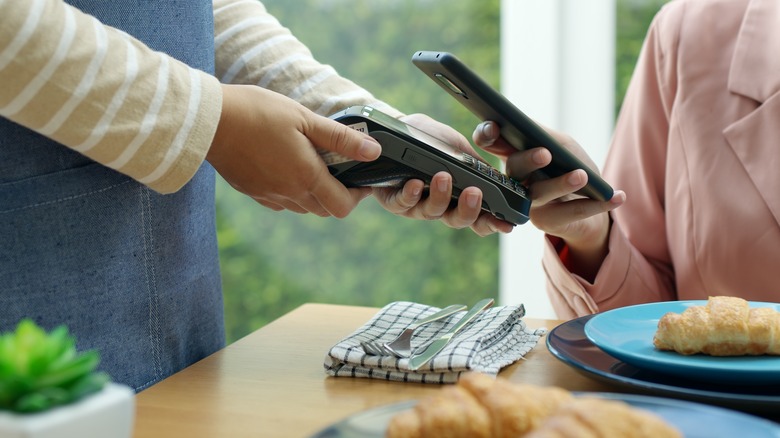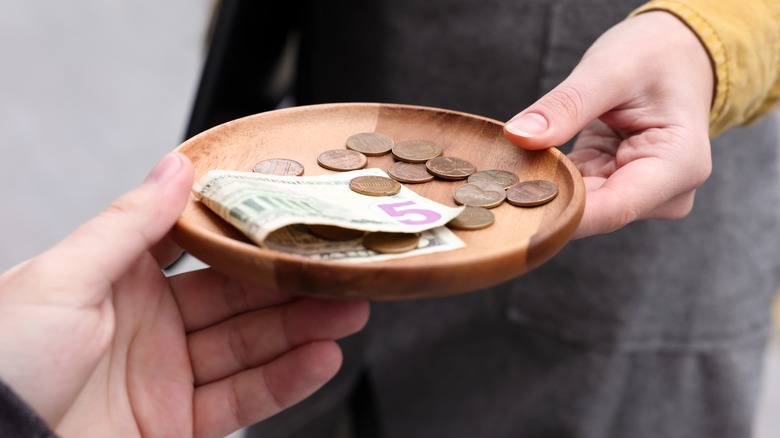The Tipping Etiquette To Keep In Mind When You're Splitting The Bill
In the United States, most servers make a living through their tips, which is, typically, a certain percentage of their customers' total bills. According to binwise, leaving gratuity to servers began in European coffee houses. Customers would walk in, see a bowl that said "To Insure Promptness" (leading to the possible acronym "tip") and fill it with money — because nothing puts a pep in the step like seeing money in a tip jar. And nowadays, gratuity in the amount of 15% to 20% of the bill (before taxes) seems to be the norm, per Bankrate.
But the practice of tipping, in general, dates back even further. In the 1850s, according to TIME, Americans with loads of money decided to leave tips to show off their wealth, having been inspired by the medieval times when masters would "tip" their hard-working servants. Most other Americans, and Europeans for that matter, scoffed at the idea. But eventually, restaurant owners took notice and liked the idea of having customers pay for their servers' wages via tips, which saved the owners money.
It's unclear whether or not tipping will have a permanent stay within the restaurant culture, so for now, it's best to stay up-to-date with standard tipping practices, one of which, per Food & Wine, has to do with splitting the bill.
Don't round down
So, let's say you're dining with someone and the bill amounts to $27.95. According to Food & Wine, many diners have the habit of rounding down a bill like this to $20, thus, leaving a smaller tip for the server. A $27.95 bill with a 20% tip comes out to $5.59. If you and a friend round the bill down to $20 (which, according to Food & Wine, is a big no-no), that means the bill would be $10 per person. At $10 per person, a 20% tip would be $2 per person, which leaves the server with $4. Now, the difference between $4 and $5.59 is pretty small, but if every table short-changes the server, then they've earned less money than they were supposed to at the end of their shift. The point is, if the server isn't giving you "discounted" service, you shouldn't "discount" their tip by rounding down.
By rounding down on the bill, it's likely that you're also affecting other restaurant staff members. As Real Simple explains, many servers have to tip out to the bartenders who made your drinks, bussers who clean the tables, and dishwashers who wash mountainous piles of dirty dishes.
So whether you're dining out with a large group or a close friend, avoid rounding down when leaving a tip for the server. They work incredibly hard to earn a living wage, and the least we can all do is show them a great "tip" of appreciation.

